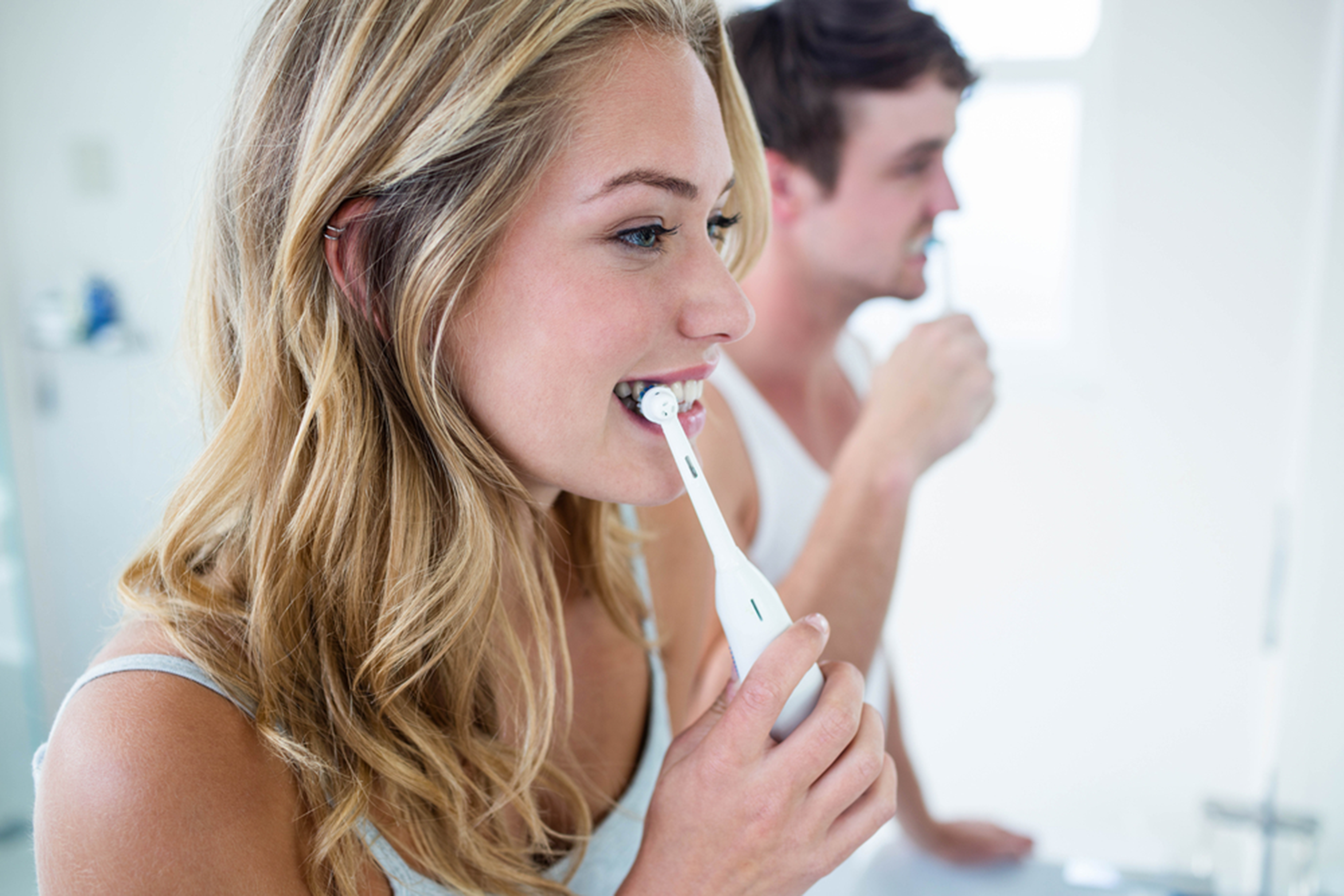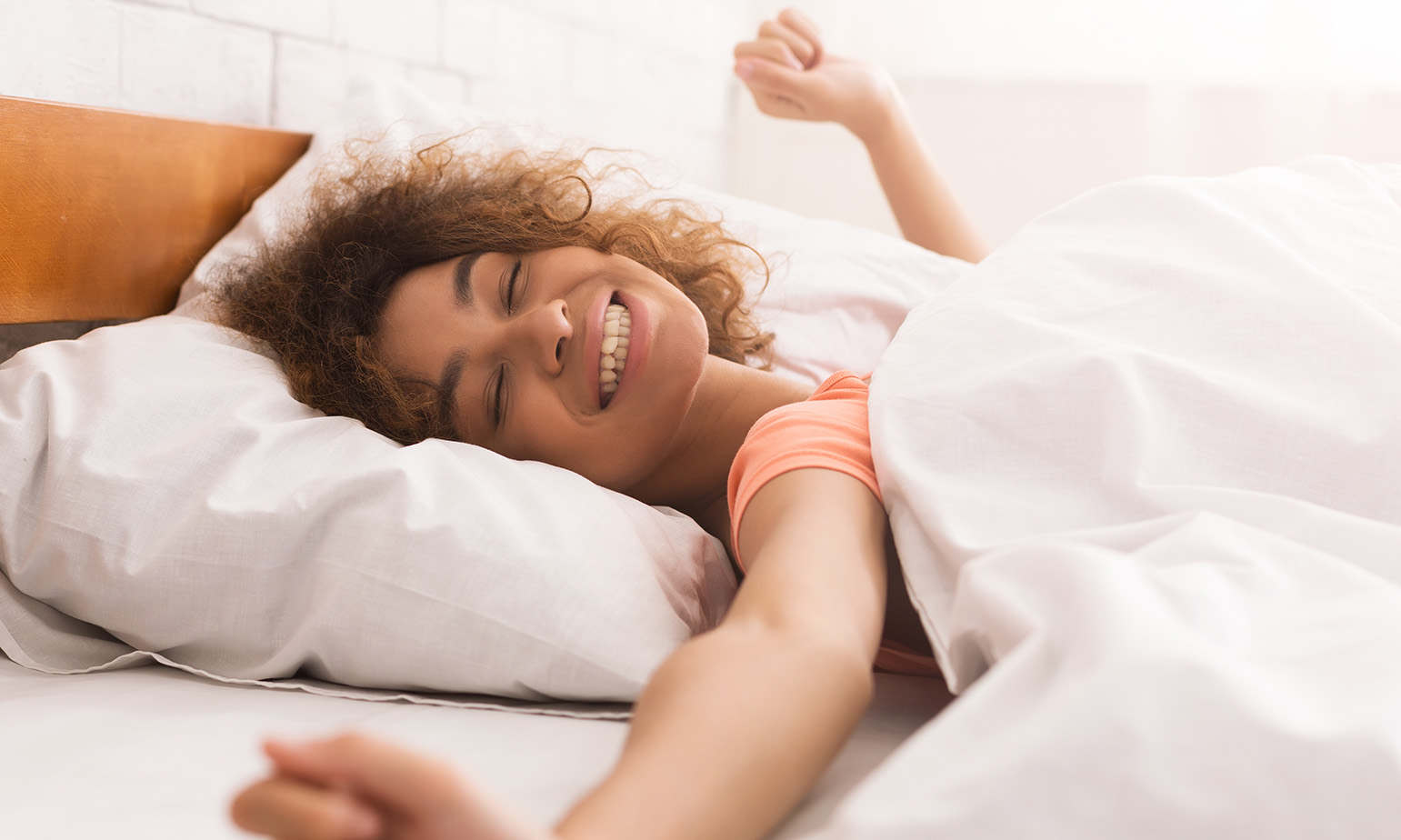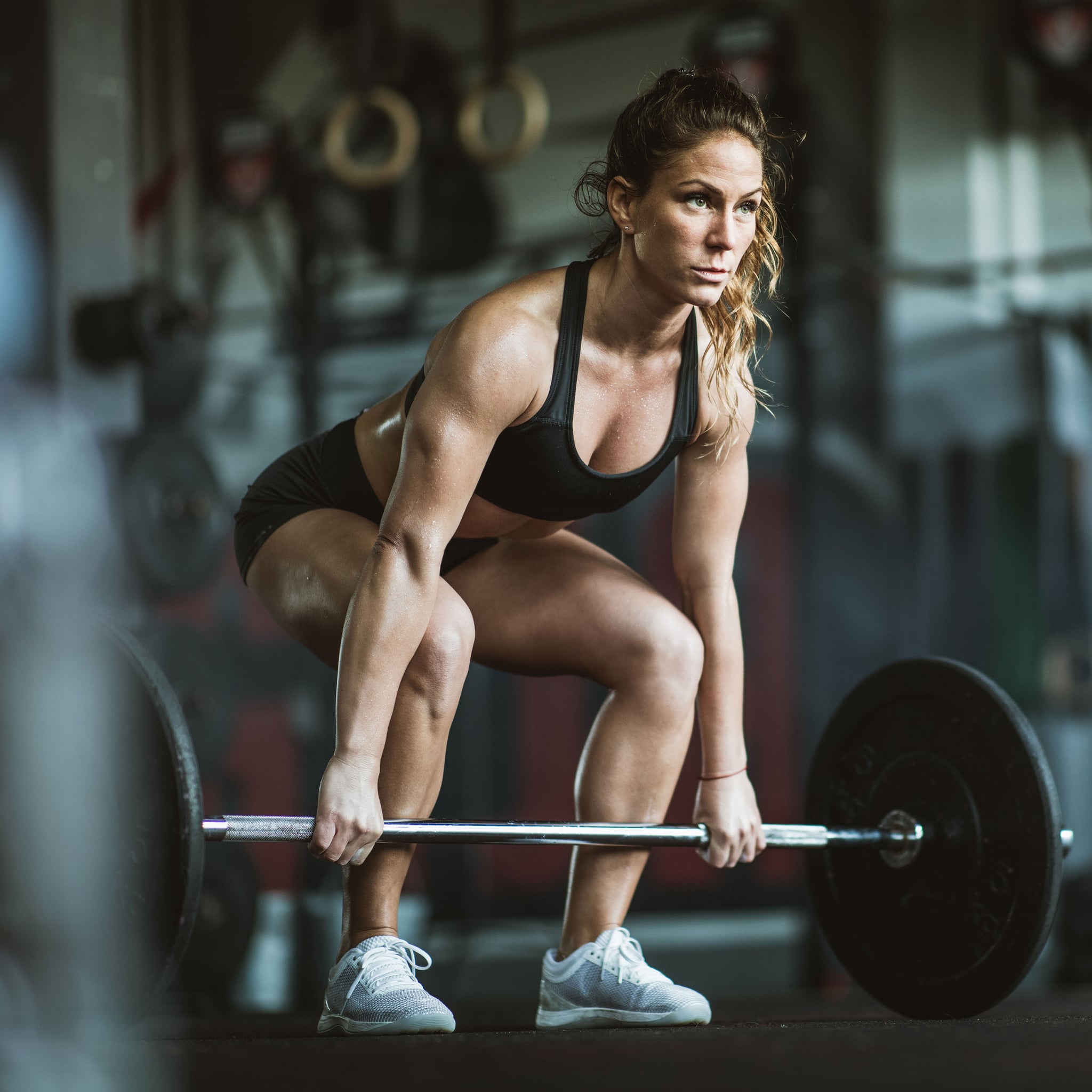10 Changes To Make to Your Wellness Routine in Your 30s
So you probably already have a set wellness routine in place: you know to eat your veggies, fit in exercise, meditate to reduce stress, drink a lot of water, and schedule an annual checkup with your doctor. While all of these things are crucial no matter your age. The body needs different things during different periods of your life. Just like when you were changing from a child to a teen and then a teen to an adult. Your body is always changing, and your wellness routine should too.
“As women enter their 30s,
they may start to notice changes to their body. Whether it’s slower metabolism, looser skin, longer healing times, less energy, etc.,” explained Dr. Cindy Tsai, MD, a board-certified internal medicine physician, mindfulness teacher, and life coach. It’s more important than ever to stick to a good self-care routine. And to listen to your body so that you can stay well. Maybe your body can’t function off of two hours of sleep like it used to in your early 20s. Or drinking a few glasses of wine is enough to give you a headache the next day (a far cry from slapping the bag in college).
And while these changes may make you feel “old.
It’s a good thing—just like you are getting wiser and more confident as you grow up. You are also getting more connected to your body. The body is telling you (more like demanding) what it needs to be healthy, and that’s something that should be celebrated. If you’re not sure what adjustments your wellness routine needs as you enter your third decade, I asked doctors, OB-GYNs, nutritionists, and experts what changes women should make to their wellness routine when they hit their 30s. To quote Jenna Rink, these 10 changes will help you be 30, flirty, and thriving.
1. Switch up your gut health routine
You already know that the health of your gut is important. But as the body changes with age, so does the gut. What kept your gut healthy as a child, teenager, or through your 20s might not do the trick in your 30s. You might even notice new gut issues arise that you haven’t experienced before. Why? “As we age, the gut microbiome changes and we become more susceptible to issues arising,” explained Alicia Galvin, RD, the resident dietitian for Sovereign Laboratories who is known as the functional GI dietitian. If you don’t have a gut health routine (probiotics and prebiotics, etc.), talk to your doctor about how to care for your gut microbiome and bring up any new symptoms. Galvin also recommended women in their 30s add certain supplements like liposomal bovine colostrum, but talk to your doc about what gut health routine is right for you.

2. Make eating well your top priority
So eating healthier is nothing new. But the start of a new decade might be a good time to reevaluate whether your diet is serving you or not. And prioritize eating well above late-night junk food binges or boozy brunches (well, most of the time). “If you have been following a ‘student diet’ through your 20s. Your 30s is the time to make health your top priority,” suggested Milda Zolubaite, a disordered eating specialist at Nutrition Path. She recommended getting more knowledgable about antioxidants, vitamins, minerals, and plant-based fiber (which is especially beneficial for gut health!). “Gradually build up to 30 different kinds of fruits and vegetables a day and aim for organic to reduce toxic load of the body,” she said.

While Zolubaite advised that your 30s is the perfect time to lay healthy eating foundations for the rest of your life. Balance is always key—a few indulgences here and there won’t make a difference. Instead, what matters is that you know how to fuel your body properly, have go-to healthy meals that you can cook for yourself, and maybe ditch or reduce foods that don’t make you feel good.
3. Focus on anti-aging and skin protection
If you’re still using the Clean & Clear wash you used to use in middle school, we need to talk. Just like your body, your skin changes by the day, month, and decade. In your 30s, you want to focus your products more on anti-aging and protection instead of acne treatment like you might have in your teens and 20s. Mila Davis, an esthetician at Skin to Smile, explained that cellular turnover slows down significantly as we age. In your 30s, cellular turnover usually occurs every 28 to 35 days, which might accumulate more dead skin cells and cause dullness. The skin also starts to lose collagen and elastin, causing fine lines, wrinkles, and under-eye circles. Davis recommended using an exfoliator one to two times a month and asking your dermatologist about retinol to increase collagen formation.

Lastly, sun protection is crucial at any age. But hyperpigmentation due to sun exposure becomes more common in your 30s due to the slower cellular turnover. “Although it is important to invest in a good sunscreen even before your 30s. It becomes essential during this decade of life to avoid excess sun exposure that can lead to excess collagen breakdown and accelerated aging,” Davis recommended.
4. Spend time alone
So maybe you don’t have the effortless lack of responsibility or ability to pull all-nighters like you did in your 20s, but every decade of your life is only getting better. At this point, you probably are more self-assured and confident than you have ever been and care less about fitting in or being liked (thank God!). While fostering the relationships that make you happy is an important part of wellness, so is spending time alone to foster the most important relationship in your life. “As you get into your 30s, you are more comfortable with who you are—make sure you spend time alone to honor yourself and your needs,” Dr. Tsai recommended.

“No matter your relationship status,
it’s important to take yourself on dates,” agreed Ani Mirasol, MS, LCSW, CGP, a licensed clinical social worker and certified group psychotherapist. “Spending time alone increases self-love, self-trust, and self-compassion.” During this decade, alone time is probably harder to make time for as you likely have more responsibilities at work and at home, whether it’s with a significant other, kids, roommates, or pets. But it’s also when you probably need alone time the most. Take yourself out for lunch, plan a solo trip, or even just spend an afternoon doing your favorite things.
5. Switch up your oral routine
You get it by now: The body is constantly changing, and every part of it needs different things at different life points and milestones. While it’s not as trendy as gut health or as visible as skincare. Your oral health likely needs a change too. And since most of us haven’t updated our routine since we were kids who learned how to brush and floss, it’s not surprising. “Dental care is always focused on maintenance and prevention. And that is still true for women in their 30s,” explained Dr. Marina Gonchar, DMD, owner of Skin to Smile. Besides more frequent dentist visits and the usual brushing and flossing recommendations, Dr. Gonchar recommended women in their 30s consider a mouth guard at night. “The third decade of life can be stressful. And life stressors often lead to grinding and clenching of the teeth that results in broken fillings, chipped teeth, and pain in the jaws and face.

Lastly, if you are planning to become pregnant,
your oral health might need some extra attention. “One of the main changes that I see women experience in their 30s is pregnancy,” Dr. Gonchar said. “Pregnant women are encouraged to see the dentist for a prophylaxis every three months instead of every six months. To prevent pregnancy gingivitis and ensure proper oral health for the mother during fetal development.” Bottom line: Since every part of the body needs different things through different phases of life, talk to all of your doctors, dentists, and specialists about any adjustments you should make based on age, life circumstances, etc.
6. Eat breakfast
I see you: You made it through all-nighters and 8 a.m. classes in college on double espressos. And as you started your busy career, you hit snooze until the last second possible. While you didn’t have time to prepare a balanced breakfast. Or maybe you lived off of McDonald’s breakfast sandwiches on the go through your 20s. Or never quite broke the habit of sugary cereal since you were a kid. But as you get into your 30s, it’s time to prioritize getting nourishment in the morning instead of depending on a cup of coffee to get you to lunch.
“Having coffee for breakfast becomes
a norm in our 20s, which can lead to a habit in our 30s, but it’s one of the most important habits that women in their 30s should kick,” warned Paulina Lee, MS, RD, LD, a functional dietitian and founder of Savvy Stummy. “Caffeine might curb cravings in the moment. But you’ll be left with an empty stomach and low fuel to use until your next meal. As a result, you might overeat or choose more unhealthy food choices later in the day.” Of course, properly fueling your body is important at any age. But if breakfast has historically been your last priority. Use the decade change to make the time, budget, and energy to provide your body with the nutrients it needs

7. Review your fertility and/or birth control plan
Right now, you and all your friends are likely in totally different phases: Some of you might have three kids or are trying to become pregnant. While others are hoping they don’t or a baby is the last thing on their mind. But getting into your 30s offers you the chance to review either your fertility or a birth control plan. If you need one so that you can prepare for your future or reevaluate what is best for your body.
“One of the most common questions
I get from women who enter their 30s is, ‘Will I be able to have children when I’m ready?’,” said Dr. Renita White, MD, a board-certified OB-GYN based in Atlanta. “Even if you are not ready to have children yet, consider a preconception appointment with your OB-GYN to discuss ways to prepare for pregnancy, egg-freezing if you plan on delaying fertility plans, or even an evaluation to see if you are at higher risk for infertility.” In other words? Knowledge is power, no matter what your needs, preferences, and lifestyle look like.
“If you are trying to conceive
or want to be pregnant someday, living fertility-friendly should be top of mind in your 30s,” agreed Mary Jane Minkin, MD, an OB-GYN and clinical professor at Yale University. “Luckily, making healthier lifestyle habits in general can positively impact fertility.” And if you know pregnancy is not in your future, reevaluate your form of birth control or managing period symptoms with your gynecologist if you haven’t reevaluated since your teens or early 20s like most women. Your hormones have changed a lot over the past 10 to 15 years, and so have our options.

8. Sleep more and focus on brain health
Of the doctors, nutritionists, and experts I talked to, many of them mentioned that they pay more attention to sleep hygiene and brain health with women in their 30s. “These are aspects of health that we don’t really think about in our 20s,” explained Danielle McAvoy, MSPH, RD, a registered dietitian with Strong Home Gym. “Once in their 30s, many women become more aware of memory and brain function and may find it harder to sleep through the night.”
McAvoy recommended focusing
on your intake of antioxidants (like blueberries and blackberries) and omega-3 fatty acids (like in salmon, walnuts, and flaxseeds). Which both help reduce inflammation and maintain the structure of our brains as we age. As for sleep, if you find that you’re dealing with insomnia more than when you were in your 20s. Talk to your doctor about lifestyle changes to help you sleep through the night. Like reducing screen time before bed or waking up at the same time every day.

9. Get annual bloodwork
So you already know that getting an annual checkup and regular mammograms, pap smears, etc. are important (and #adulting), but getting annual bloodwork is also crucial to know what’s going on in your body. “Having regular insight on what’s going on inside your body is a key way to keep an eye on preventing health diseases,” Dr. Lee explained. “Be sure you ask your doctor to run labs to check in on your sex hormones (estrogen and progresterone) and thryoid health.
As we age,
our metabolism may begin to slow down, which could be impacted by our thyroid health. Especially if you’ve either been gaining weight or have trouble losing it.” Here’s your reminder that the body is constantly changing. So if you haven’t gotten regular bloodwork panel since you were in your 20s. It’s probably time to start making it more of a routine. After all, the best thing you can do for your health is to be informed.

10. Add strength training to your exercise routine
We love our marathon runners and cardio queens. But if your go-to routine consists of only jogging, dancing, or biking, now is an important time to add some weight training into your routine to help your body retain muscle as you get old. “Women reach peak bone mass before the age of 30, which means that after 30, you begin to lose bone mass (which is a predisposing factor for osteoporosis),” suggested Dr. Brittany Robles, an OB-GYN physician and a NASM certified personal trainer. “Resistance training can help mitigate those effects.” Cardio and weight training both have their benefits, so keep up with the routine that feels best for you. But adding in one or two days of weight lifting or getting some at-home dumbbells for movements in between cardio sessions is important for keeping your bones healthy and reducing risk for injury, especially as we age.

